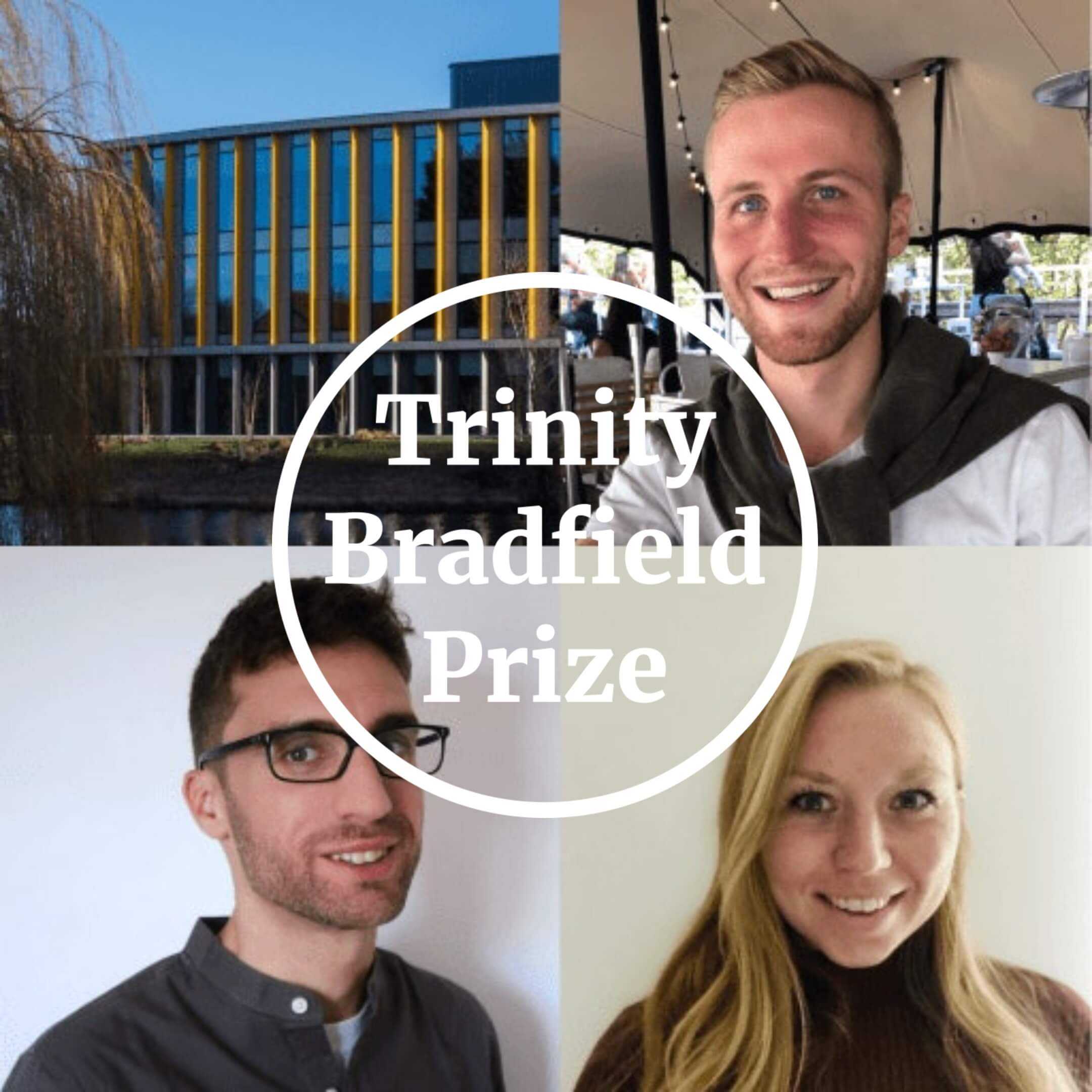The Trinity Bradfield Prize 2022 is open for applications from researcher-entrepreneur teams with a tech or life science idea that has commercial potential.
Teams with at least one member of the University of Cambridge can compete for a first prize of £10,000 and second prize of £5,000. The winners also receive three-months support including eight hours a month of bespoke mentoring at The Bradfield Centre at Cambridge Science Park, which recently celebrated its fifth anniversary.
Additionally, the Geoffrey Hellings Prize, in memory of the Trinity student in the 1920s, offers £5,000 and mentoring for a current Cambridge student. The original essay prize, established by Mr Hellings’ family in 2008, has evolved into an award for an idea that ‘demonstrates outstanding innovation, creativity, and enterprise in Sciences or Technology by a student or students pursuing a course for the award of a Cambridge University degree.’
Bradfield Prize 2021 ceremony
Managing Director of The Bradfield Centre, James Parton, said he was excited by the return of the awards.
Since we launched the Trinity Bradfield Prize nearly 300 teams have applied, representing the top-notch tech and life science entrepreneurial ideas across the University. Winners can again look forward to non-dilutive cash prizes, mentoring, and membership of The Bradfield Centre, which together make the Trinity Bradfield Prize one of the most exciting and innovative start-up competitions at Cambridge.
Dr Benjamin Droguet, postdoctoral researcher at the Department of Chemistry, won the 2021 first prize for innovating cellulose-based colours and glitter for use in an array of commercial sectors, including cosmetics, where there is significant demand for more environmentally friendly products.
He said:
The Trinity Bradfield prize was a great opportunity to showcase the technology that I developed during my PhD to the greater Cambridge tech ecosystem. The contacts that arose from the event were multiple and winning the prize provided that external business credential that is crucial when launching an innovative venture.
The monetary allowance was the cherry on the cake, allowing me to get critical legal services for Sparxell with greater peace of mind. If you have a great idea at the right maturation stage, I can only recommend applying.
Second prize winner, Dr Molly Haugen, Senior Research Associate at the Department of Engineering, has used the £5,000 prize money to develop a mini detector of tiny particles – including viruses and pollutants – for use by consumers, researchers and in commercial settings.
The Bradfield Prize supplied our research group with funds to iterate on our previous design, improving the overall function of the device. The mentoring programme was also useful to network with successful entrepreneurs, as they were able to provide advice of how to move the commercialisation of our product forward. It was great to meet so many people who wanted to offer their help.
Jack Davis, who was studying for MPhil in Machine Learning and Intelligence, won the Geoffrey Hellings Prize last year for developing an AI-based rendering engine that creates realistic video content of real events and scenes.
Winning the Hellings Prize was an excellent foundation for helping to commercialise my research. The prize funding was useful for accelerating the next steps of building my startup, including market research and completing applications for further grant funding. I also learnt a huge amount from the experience of pitching during the competition, which was invaluable when approaching private investors. This ultimately led to a successful pre-seed investment round from leading European VC funds.
Since winning the prize, we have increased the headcount from 1 (just me!) to 5 people and are working hard to launch our initial product offering by the end of the year.

2021 winners, clockwise from top right: Jack Davis, Dr Molly Haugen, Dr Benjamin Droguet
Former Master of Trinity, biotech entrepreneur and Nobel Laureate, Sir Gregory Winter, was instrumental in setting up both the Bradfield Centre and the Trinity Bradfield Prize. He said:
Each year the competition gets better, as do the chances of seeding a unicorn! At the prize-giving event last year, we heard some great ideas based on sound science, together with plans of how the applicants might turn them into businesses. The event was itself a learning experience, and proved a real cliff-hanger, both for the audience and the judges.
Last year 125 teams applied for the Trinity Bradfield Prize which was judged by Sir Gregory, Kerry Baldwin of IQ Capital, Anne Dobree of Cambridge Enterprise, and serial entrepreneur Robert Swann.
Applying for the Trinity Bradfield Prize is straightforward. Complete an online form (15 short questions) by 31 October. Finalists will be selected for a live pitch on 6 December when the judging panel will select the winners.
